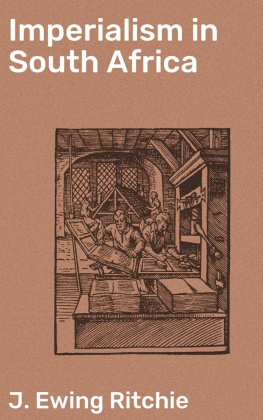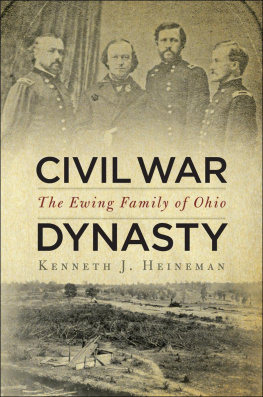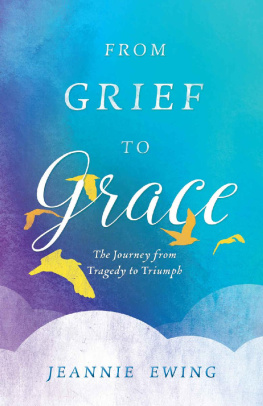CHAPTER I.
East Anglia in 1837 .
In 1837 Lord Melbourne was Prime Ministerthe handsomest, the most cultivated, the most courteous gentleman that ever figured in a Royal Court. For his young mistress he had a loyal love, whilst she, young and inexperienced, naturally turned to him as her guide, philosopher and friend. The Whigs were in office, but not in power. The popular excitement that had carried the Reform Bill had died away, and the Ministry had rendered itself especially unpopular by a new Poor-Law Bill, a bold, a praiseworthy, a successful attempt to deal with the growing demoralisation of the agricultural population. Lord Melbourne was at that time the only possible Premier. I have no small talk, said the Iron Duke, and Peel has no manners, and few men had such grace and chivalry as Lord Melbourne, then a childless widower in his manhoods prime. He swore a good deal, as all fine gentlemen did in the early days of Queen Victoria. One day Mr. Denison, afterwards Lord Ossington, encountered Lord Melbourne as he was about to mount his horse, and called attention to some required modification in the new Poor-Law Bill. Lord Melbourne referred him to his brother George. I have been with him, was the reply, but he damned me, and damned the Bill, and damned the paupers. Well, damn it, what more could he do? was the rejoinder. And in East Anglia there was a good deal of swearing among the gentry. I can remember an ancient peer who had been brought up in the Navy, who resided in the Eastern Counties, and who somehow or other had been prevailed upon to attend as chairman at a meeting of the local Bible Society. I have forgotten the greater part of the noble Lords speech, but I well remember how his Lordship not a little shocked some of his hearers by finishing up with the remarkthat the Bible Society was a damned good Society, and ought to be damned well supported. Another noble Lord, of Norfolk, had some fair daughters, who distinguished themselves in the hunting field, where they had a habit of swearing as terribly as an army in Flanders. In this respect we have changed for the better; ladies never swear now.
In politics bribery and corruption and drunkenness everywhere prevailed. It was impossible to fight an election with clean hands. In 1837 there was an election at Norwich; the late Right Hon. W. E. Forster has left us a good account of it. Went to the nomination of city candidates this morning. The nomination was at eight. Went in with the mob into the lower court. Great rush when the door was opened. When the Crier demanded attention for the reading of the Act against bribery and corruption, he burst out laughing at the end, in which he was followed by the Sheriff, candidates and almost everybody else. The show of hands was, as was generally the case, in favour of the Liberal. But on the next daythat of the pollthe Tories were declared to have the majority. All round the polling booths the rioting was great, as men were brought up in batches to voteeach party struggling to prevent their being done by the other, and a good deal of fighting ensued. Mr. Forster writes:About nine I sallied forth to take observations. At the Magdalen Ward booth I saw some dreadful cases of voting by drunken people, both Whig and Toryone in which the man could hardly speak, and there were two men roaring Smith and Nurse (the names of the Whig candidates) in his ears. I went to see all the polling places in the course of time. About three I saw some furious bludgeon-fighting in Palace Plain, the police taking bludgeons from some Tory hired countrymen. The Mayor and Sheriff were there. One of the police was badly wounded by a bludgeon. The soldiers were sent for, and then the Mayor, thinking he could do without them, sent George Everett, the Sheriffs son, a boy, and myself to stop them. We very soon met them inthe road leading from the Plain to the barracks trotting forward with their swords drawn. We held up our hands andpartially stopped them, but the Mayor altered his mind and they came on. The policemen had got the better, but thesoldiers soon cleared the place.
The election overit is said to have cost 40,000the triumphant Members were borne in chairs on mens shoulders and carried through the streetsa very unpleasant process, as they had to smile and bow to the crowd of lookers-on in the streets and in the houses along which they passed. The old dragon Snap from St. Andrews Hall figured in the show. Out-voters were brought from London and other parts of the country in stage coaches hired for the purpose. Every one showed his colour, and every one was primed with beer and ready for a row. A General Election was a saturnalia of the most blackguard character. In all, Norfolk returned twelve Membersfour for the county, the Eastern Division sending two Members, the influential landlords being Lord Wodehouse, the Earl of Desart and the Marquis of Cholmondeley, with an electorate of 4,396. In West Norfolk the electors were not so numerous, and the influence was chiefly possessed by the Earl of Leicester, Lord Hastings, the Marquis of Cholmondeley, Lord Charles Townshend and the Marquis of that name. In both divisions Conservatives were returned. In the Eastern Division of Suffolk, which had its headquarters at Ipswich, the electorate returned two MembersLord Henniker and Sir Charles Broke Vere. The leading landlords were the Earl of Stradbroke, the Duke of Hamilton, the Marquis of Hertford, the Dysart family, and Sir Thomas Gooch. Sir Thomas had represented the county up to the time of the Reform Bill; in 1832 Robert Newton Shawe was elected. West Suffolk, whose chief electoral town was Bury St. Edmunds, returned Tories, under the influence of the Marquis of Bristol and other landlords. The boroughs did a little better; Bury St. Edmunds returned one Liberal, Lord Charles Fitzroy, elected by 289 votes, and Lord Jermyn (C.), who polled 277 votes. Colchester, however, a very costly seat to gain, was held by the Conservatives. Chelmsford and Braintree were the chief polling places of Essex north and south, and in both divisions Conservatives were returned. Eye rejoiced in its hereditary representative, Sir Edward Kerrison, Conservative. It is strange that so small a borough was spared by the first Reform Bill. In our time it has been very properly disfranchised. Sudbury, a Suffolk borough, a little larger, which returned two Conservatives in 1837, was very properly disfranchised for bribery in 1844. Ipswich was also supposed to be by no means an immaculate borough. Dodd writesconcerning it: Money has long been considered the best friend in Ipswich, and petitions on the ground of bribery,&c., have been frequent. In 1837 it returned one Liberal and one Conservative, Milner Gibson, whom Sir ThomasGooch, of Benacre Hall, recommended to the electors as a promising Conservative colt. He lived to become M.P. forManchester, to be one of the leaders of the Anti-Corn Law Movement, the head of the Society for the Repeal of the Taxeson Knowledge, a society which owed a great deal of its success to his Parliamentary skill as a tactician, and to be aMember of a Liberal Administration. There were few finer, manlier-looking men in the House of Commons than ThomasMilner Gibson. At any rate, I thought so as I watched him, after the delivery of a most effective speech in Drury LaneTheatre on the Corn Laws, step into a little ham and beef shop close by for a light for his cigar. At that time, letme remind the reader, waxlights and matches were unknown. The electoral body in Ipswich was not a large one. At theReform Act period it consisted of 1,800. At that time the constituency had been increased by adding to the freemen, ofwhom little more than three hundred remained, the ten-pound householders within the old borough, which included twelve parishes. It is curious to note that, in 1839, Mr.Milner Gibson, who had resigned his seat on his becoming a Liberal, was rejected, the numbers beingSir Thomas Cochrane(Conservative), 621; Milner Gibson, 615. Ipswich seems always to have been undergoing the excitement of a GeneralElectionand, it is to be feared, enjoying the profits of an election contest, as no sooner was an election over thanit was declared voidand a new writ was issued. In 1837 Thetford, no longer a Parliamentary borough, returned twoM.P.s, one Conservative and one Liberal. A little more has yet to be written relative to smaller East Anglianboroughs. Lynn, under the influence of the Duke of Portland, in 1837 returned two distinguished men to Parliament:Lord George Bentinck, then a great racing man, but who was better known as the leader of the Protectionist party, andSir Stratford Canning, the great Eltchi, who was to reign imperiously in the East, and at whose frown Turkish Sultanstrembled. Maldon returned two Conservatives. It has long very properly ceased to exercise that privilege. GreatYarmouth, which has now an electorate of 7,876, at the General Election in 1837 returned two Liberals, but the highestLiberal vote was 790, and the highest Tory vote 699. Money was the best friend at Yarmouth, as in most boroughs. Inaccounting for the loss of his seat at Weymouth in 1837, one of our greatest East Anglians, Sir Thomas FowellBuxton, writes:My supporters told me that it would be necessary to open public-houses, and to lend moneya gentlename for briberyto the extent of 1,000. I, of course, declined. Yet, as a boy, I must own I enjoyed the fun, theexcitement, the fighting of the old elections, much more than the elections of later times. If now and then a skullwas cracked, what mattered, while the Constitution was saved!






